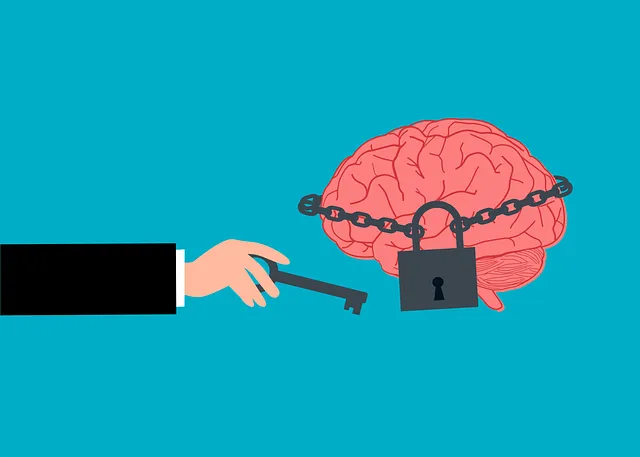The Kaiser Permanente mental health phone number in Lone Tree is a vital resource for residents facing trauma or mental health struggles, offering immediate access to trained professionals. By integrating trauma-informed practices and implementing specialized programs, healthcare providers at Kaiser Permanente foster a safe and empathetic environment. This initiative, coupled with community programs, enhances resilience, promotes healing from trauma, and contributes to a supportive ecosystem within Lone Tree.
Trauma support services are vital for communities like Lone Tree, where individuals face diverse traumatic experiences. This article explores the critical role of understanding trauma and its impact as a foundation for effective support systems. We delve into a key resource, the Kaiser Permanente Mental Health Phone Number, accessible to Lone Tree residents, offering crucial assistance. Additionally, it provides insights into accessing trauma-informed care, best practices, and community initiatives focused on building resilience and healing.
- Understanding Trauma and Its Impact: A Foundation for Support Services
- Kaiser Permanente Mental Health Phone Number: A Key Resource for Lone Tree Residents
- Accessing Trauma-Informed Care: Strategies and Best Practices
- Building Resilience and Healing: Effective Interventions and Community Initiatives in Lone Tree
Understanding Trauma and Its Impact: A Foundation for Support Services

Understanding trauma is a fundamental step in establishing effective support services. Trauma can manifest in various ways, from acute events like accidents or natural disasters to chronic stressors that build over time, such as long-term employment issues or repeated exposure to violence. These experiences can have profound effects on mental health, leading to conditions like depression, anxiety, and post-traumatic stress disorder (PTSD).
In the context of Lone Tree, where access to specialized services might vary, initiatives focused on burnout prevention and resilience building through mental health education programs design are crucial. Organizations like Kaiser Permanente can play a pivotal role by offering their mental health phone number as a point of entry for individuals seeking support. By prioritizing trauma-informed care, these services ensure that the unique needs of those affected are met with empathy and specialized attention.
Kaiser Permanente Mental Health Phone Number: A Key Resource for Lone Tree Residents

For residents of Lone Tree struggling with trauma or mental health challenges, accessing appropriate support services is paramount. In such instances, the Kaiser Permanente Mental Health Phone Number stands as a beacon of hope and guidance. This dedicated line offers immediate assistance, connecting individuals with trained professionals who can provide tailored care.
The significance of this resource lies in its accessibility and ability to offer a confidential space for individuals to express their concerns. Whether it’s navigating a recent traumatic event or managing ongoing mental health issues, the Kaiser Permanente team is equipped to conduct risk assessments (for mental health professionals) and facilitate referrals to specialized services. Public awareness campaigns development around these services further ensures that Lone Tree residents are empowered to take proactive steps towards enhancing their mental wellness.
Accessing Trauma-Informed Care: Strategies and Best Practices

Accessing Trauma-Informed Care is a critical aspect of providing effective support to individuals who have experienced trauma. At Kaiser Permanente mental health phone number Lone Tree, we understand that every individual’s journey with trauma is unique and requires tailored care. To ensure comprehensive support, healthcare providers should integrate trauma-informed practices into their everyday work. This involves creating safe spaces where patients feel respected and understood, actively listening to their stories, and recognizing the impact of trauma on physical and mental health.
Implementing Mental Health Education Programs designed with a trauma-informed lens can equip professionals with the necessary skills to respond sensitively to patients’ needs. Moreover, Risk Management Planning for Mental Health Professionals is essential to ensure a supportive environment. By fostering an atmosphere of trust and empathy, healthcare providers can empower individuals to process their traumatic experiences and work towards healing. Enhancing Mental Health Awareness through such initiatives not only benefits direct care but also contributes to a more supportive community ecosystem.
Building Resilience and Healing: Effective Interventions and Community Initiatives in Lone Tree

In Lone Tree, building resilience and healing for individuals who have experienced trauma is a holistic effort involving both professional interventions and community initiatives. Organizations like Kaiser Permanente play a pivotal role by offering mental health support through their dedicated phone lines, providing easy access to resources for those in need. The focus is on empowering individuals with effective coping skills, which include social skills training and empathy building strategies, enabling them to navigate the challenges of daily life following traumatic events.
Community initiatives complement these professional services by fostering a supportive environment where individuals can share experiences, learn from each other, and develop a sense of belonging. Through group therapy sessions and peer support programs, residents in Lone Tree are equipped with not just coping skills but also emotional resilience, fostering a community that is more understanding and better equipped to address trauma-related issues collectively.
In conclusion, trauma support services play a vital role in healing communities like Lone Tree. By understanding trauma’s profound impact, implementing trauma-informed care, and leveraging resources such as the Kaiser Permanente mental health phone number for Lone Tree residents, we can foster resilience and initiate meaningful healing. Community initiatives that focus on effective interventions hold promise for a brighter, more supportive future for those affected by traumatic experiences.






